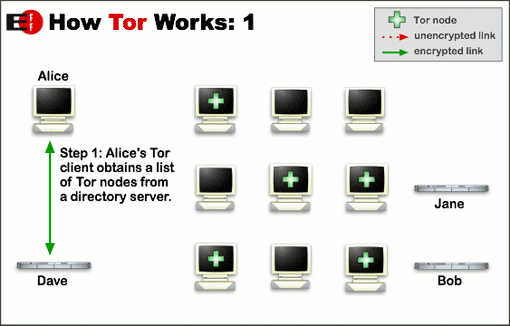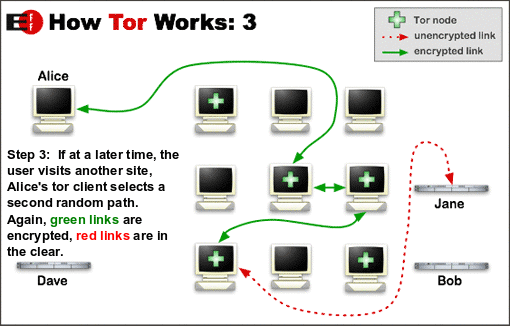Tor offer to embed Firefox into browser as standard
 A ticket 901614 is registered in the Bugzilla tracker, which proposes to improve the security of the Firefox browser by incorporating the Tor anonymizer into it as a standard option.
A ticket 901614 is registered in the Bugzilla tracker, which proposes to improve the security of the Firefox browser by incorporating the Tor anonymizer into it as a standard option.This is quite a bold offer. Until recently, the network of Tor anonymizers was considered in a sense an exotic technology that only hackers and dissidents use. Everything has changed in recent months, after the story with total tapping of Internet traffic by the NSA and other special services. Under current conditions, cryptography and anonymizer are needed for every person who wants to guarantee the confidentiality of his communications.
If the initiative to implement Tor into the Firefox browser is implemented, the “onion” anonymizer will become the standard tool for surfing the Web.
Tor works as a distributed multi-layer anonymizer consisting of thousands of nodes passing traffic along an unpredictable route, with the addition of an additional encryption layer on each node (hence the name “Onion Router” - The Onion Router, TOR).
')


Users run a proxy server on their machine, it connects to Tor servers, periodically creating a chain through the Tor network, which uses cryptography in a multi-layered way. Each packet entering the system passes through three different proxy servers, which are randomly selected. Before sending, the packet is sequentially encrypted with three keys: first for the third node, then for the second, and, finally, for the first. When the first node receives a packet, it decrypts the "upper" layer of the cipher (analogy with how to clean the onion) and find out where to send the packet next. The second and third server do the same.

On the Tor network, there are so-called “hidden services” - sites in the .onion domain, which can only be viewed using the Tor browser. The physical location of the servers is as hidden as the IP addresses of the users.
Tellingly, the Tor software package is still being built based on Firefox 17.0.8esr . It contains a customized version of the browser, as well as the necessary extensions, including HTTPS Everywhere, NoScript, LibPNG, etc.
Source: https://habr.com/ru/post/191386/
All Articles